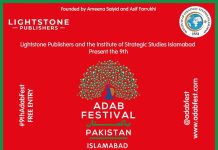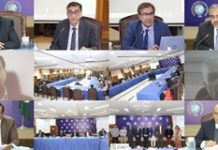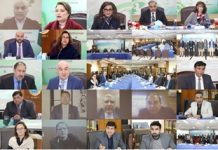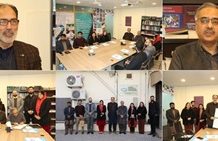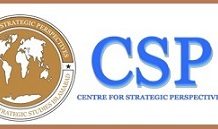Presentation by DG ISSI at the
Islamabad Security Dialogue (ISD) 2022
on
Economic Security and Geoeconomics
02 April 2022
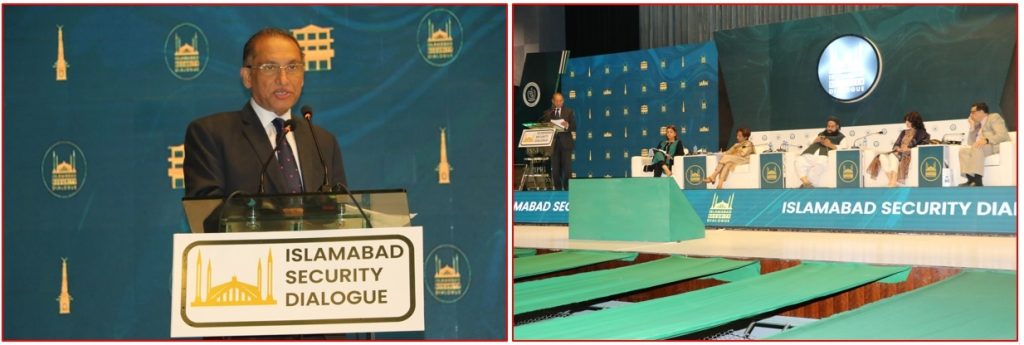
The Institute of Strategic Studies Islamabad organized a seminar at the Institute on 9th March 2022 on Economic Security and Geo-Economics: Challenges and Opportunities for Pakistan.
The participants included former federal and provincial finance ministers and leading experts from academia and research community.
General points made by the speakers:
- A strong economy makes the people prosperous, defense robust, and the nation more secure. The recently announced National Security Policy has rightly attached primacy to economic security in the context of comprehensive national security.
- Pakistan must attach highest priority to putting its economic house in order. For that, it needs essential reforms, including developing value-chains for global competitive markets, fixing energy problems, making local markets more efficient, reducing the size of the government, deregulations, increasing private investment, attracting FDI, concluding the IMF program, and maintaining overall stability. This may appear to be a daunting and painful process, but there is no alternative to comprehensive economic reforms
- In the evolving geopolitics, with new alignments and blocks shaping up, there are both challenges and opportunities for Pakistan. Ideally, Pakistan should build deeper economic relationships with China, Central Asia and Russia while keeping its existing economic channels functional with the US, Europe and other major powers. This will not be easy. However, with diplomatic finesse, and the right emphasis on geoeconomics, the challenges can be converted into opportunities.
- The CPEC has served Pakistan well in terms of infrastructure development, energy security, connectivity, and business to business investments. The cooperation with China must continue in full steam.
Pakistan’s External Account Balance and road to IMF - Pakistan’s macroeconomic policy needs to shift its focus from stabilisation to sustainability, from consumption to investment, from imports to exports, and from current services sector to industrial base. Absolute rethinking of the economy is needed as ad-hoc solutions do not work and lead the country back to the IMF.
- The focus at this time should be on SMEs. With right policies and environment for SMEs, our economy will create jobs, promote household savings, and enhance overall inclusion of the people and the businesses.
- Our delegations negotiating with the IMF must go well prepared, preferably with a growth reform package ready. Otherwise, it has to face the terms dictated by the IMF.
Pakistan`s Regional Trade and Economic Integration - It is time to connect the region better through freer flow of people, goods, and capital in South Asia. The region, by not being integrated within, is wasting its tremendous potential. Mobility within the region is of critical value in order to explore the untapped trade within and between the regions. It is imperative to create easy border access like Europe and invest in active patrolling and regulating controls.
- A prerequisite to deriving optimal economic benefits from regional integration, it is essential to resolve regional conflicts as amicably as possible.
Pakistan`s Industrial Development and SEZs - SEZs have been positive as part of CPEC’s broader architecture and its phase two requires increased participation from the public, private and joint public-private engagement.
- The industrialization process requires a holistic approach. A country like Pakistan can have a mixed model of import substitution and export promotion at the same time.
Dynamics of Pakistan’s Human Security - Recent research shows that a higher share of knowledge intensive goods in the exports profile of a country lead to a higher per capita income in the long term.
- Countries can achieve knowledge intensive export structure by investing in their own people and building a “human economy”. To this end, Pakistan needs to manage its population growth for a sustained economic growth.
- The creation of a knowledge-based economy depends on innovation and creativity which in turn depends on the vitality of physical and mental health.
- Pakistan should also focus on linking its network of research institutions and universities, with industry to achieve a knowledge-based economy.




